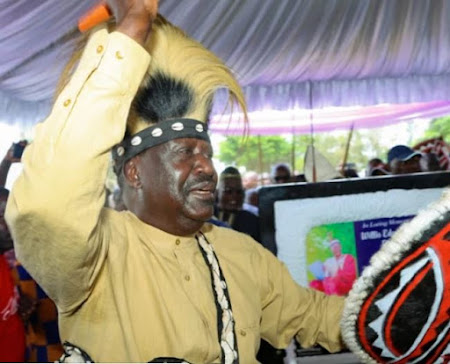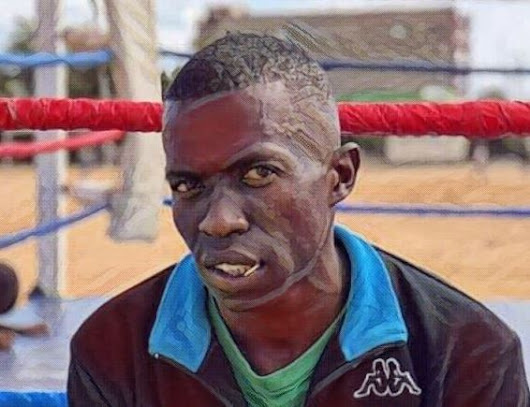It was within the trade unions that he developed his public speaking skills and confirmed his amazing organizational skills that were to serve him well in his political career later.
The state of emergency had been declared in 1952. It remained in 1957 long after the colonial administration had ruthlessly clamped down on the Mau Mau, basically a group that was fighting for the return of their land taken over by European settlers (and not independence as is widely claimed).
In fact by 1957 when elections were held that would see the first 8 Africans join Legco (the Legislative council or parliament of the time), members of the Gikuyu, Embu and Meru tribes were not allowed to take part in any political association unless they obtained a loyalty certificate. These were th communities that had been most active in mau mau and the fight for their ancestral land to be given back.
What is important here is not the way Mboya brilliantly beat an older, married and much more famous man in lawyer Arwings Khodhek, or the fact that most of the voters were from the Kikuyu tribe and still shunned their own Munyua Waiyaki, who was also in the race, for Mboya? It was mainly that the youngest politician was able to quickly send a telegraph to each of the other 7 African elected leaders as the results came in. Nairobi as always was announced first but the other territories took time.
The only two names of the other elected leaders in March 1957 that will make sense to most Kenyans today are those of Daniel Arap Moi and Jaramogi Oginga Odinga (Raila Odinga’s father).
In his congratulatory telegram, Mboya invited them to a meeting in Nairobi. This single act did more than anything else to bring independence to Kenya, for a simple reason. The 8 leaders were able to map out a strategy on their approach in the Legco that would see them reject the two 3,500 sterling pounds a year ministerial post offers. Thanks to Mboya and despite endless difficulties, the 8 remained united and speaking in one voice (at least most of the time)..
One of the first things that the newly elected African leaders asked for, was more representation in Legco, since Africans were the majority in the country anyway. They asked for another 15 elected members in Legco.
Right upto independence the “brains” behind the African leader’s strategy was Tom Mboya. In 1957, when Mboya was elected into Legco, he was only 27 years old. Imagine a youngster, not yet 30 leading the fight for independence?
Naturally some people did not take it kindly. In fact some people within the 8 African leaders in Legco were naturally very jealous of the “young man”. Mboya’s biographer David Goldsworthy paints a perfect picture of the situation then. He clearly points out in his book “Tom Mboya the man Kenya wanted to forget” that Mboya was young ambitious, brilliant and proud and yet the likes of Oginga Odinga who hailed from the same tribe was continuously being upstaged and outsmarted by the youngster. The older man felt that he deserved some respect from the youngster.
Coming out of the London constitutional conference of 1960, as Mboya made the cover of Time, it was clear in the eyes of many that this youngster (just 30 then) was the front runner to be the first President of Kenya. Jomo Kenyatta was still languishing in jail. This is what a leading British newspaper had to say about Mboya and Kenyatta at the time.
“As a thoroughly modern African, Mboya is often compared with Jomo Kenyatta. Even those who consider Kenyata guiltless of any connection with Mau mau have noted that he (Kenyatta) passionately defended some irrational beliefs of the kikuyu tribe. He justified female circumcision in his book, “Facing Mount Kenya”. But Mboya has no respect for any of the traditions of tribalism.”
Then Odinga struck. He issued a statement to the press saying that the African leaders wanted the release of Kenyatta before independence. Rather than having a love for Kenyatta, this statement was a political move targeted directly at Mboya. As an African leader representing cosmopolitan Nairobi, the majority of his votes came from the Kikuyu. Mboya knew that any statement that was vaguely not in sync with that of Odinga on Kenyatta would be political suicide for him.
So to cut a long story short, Kenya’s first president (and all other presidents after him to date) was a compromise candidate. Kenyatta was released from detention on 22 August 1961.
Still Mboya had everything going for him. He was a young, ambitious and brilliant politician who had almost single-handedly master-minded the non-violent fight for Uhuru. It appeared that time was on his side. But sadly fate had other ideas.
However in the 50s (the decade that tribalism was probably at its' lowest ebb ever in Kenya. Because Luos were getting elected to parliament in Nairobi by an enthusiastic Kikuyu electorate and Luo men were falling head over heels in love with Kikuyu women.)

I dug this out of the Kumekucha archives
Similar stories;
Size Matters In A Husband And Is Ending Way Too Many Marriages
I Regret Mini Skirt I Was Wearing During Imara Daima Carjacking Ordeal
Macabre Cases Of Intercourse With The Dead And Dead Men behaving Badly After Death
Woman has epileptic fit every time she tries to be with a man
SICK!!! Gangsters hijack Matatu & Force Male Passengers on Female Passengers As They Watch
Campus Girl Makes Kshs 20,000 Monthly Selling Pregnancy Test Kits To Students
You Dream You Are Pregnant: Why It Is So VERY Dangerous
Most Beautiful Woman On Earth Is Charcoal Black But Mother Kills Toddler With Skin Lightners
self made millionaire business ideas
Very revealing make money secrets from real life situations that unfolded. This Brian Tracy and Kumekucha Chris nuggets of information are nothing short of game-changing.
Ruto had a plan and a burning desire to be president. That much is clear. He launched a crusade (in his mind) to achieve his ultimate goal, long before he actually vied. Read article
Read revealing Ruto article on this blog -----A celebrated boxing champion is among Kenyans who lost their lives during the anti-government protests on Wednesday 12th July 2023.
---
The corporate empire of billionaire David Langat was driven into uncharted terrain this week when auctioneers forced the sale of his Mombasa office buildings and Nandi tea estate in order to pay a local bank more than Sh2.1 billion in back debt.
Read; Has David Langat fallen out with close buddy William Ruto?
---
Former Kakamega Governor Wycliffe Oparanya, according to Azimio La Umoja One Kenya Coalition Party Leader Raila Odinga, has been arrested by police. He was later released.
Just yesterday: Oparanya recounts how rowdy youths damaged his car during demonstrations in Busia---
Most leading analysts including Pro. Herman Manyora seem to agree that the government of William Ruto is on the losing end of the Maandamano duel with Azimio and Raila Odinga. It is as clear as day.
This is Uhuru's future from a man who has NEVER gotten it wrong (2013 prediction)
...Then in the midst of all these uncertainties an arrogant Briton came into the country for prayers and started making predictions and prophecies on the country's political future. Few Kenyans had ever heard of the London based preacher. But he spoke with such authority that some Kenyans even got annoyed.
Then he predicted Uhuru Kenyatta's future and I did not like it one bit.... This is Uhuru's future from a man who has NEVER gotten it wrong (2013 prediction)

















VERY,VERY,FACTUAL.I`M GOING TO TAKE A DANGEROUS PATH HERE AND GIVE YOU A HINT.
ReplyDeleteMOST HAVE ARGUED THAT KENYATTA WAS BEHIND THE DEATH OF MBOYA,WELL MAYBE AND MAYBE NOT!LOOK AT HIS(MBOYA) CIA LINK,AND THEN LOOK AT JARAMOGI`S RUSSIA,CHINA LINK.I1M NOT TELLING YOU ANYTHING I`M SIMPLY POINTING YOU IN THE RIGHT DIRECTION.thats a fact!
Utter nonsense! There isn't a shred of evidence that Mboya was connected in any way to the CIA. That was merely his murderer's (i.e. C.M. Njonjo) propaganda.
ReplyDeleteMichael Kiwanuka (UK)